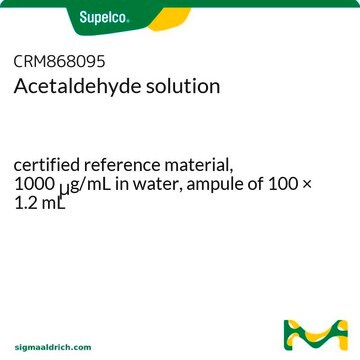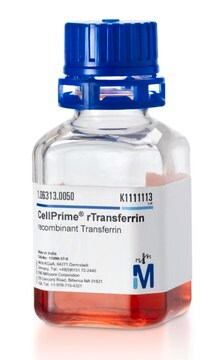868095
Acetaldehído solution
1000 μg/mL in H2O, analytical standard
About This Item
Productos recomendados
grade
analytical standard
CofA
certificate of analysis is enclosed in each package.
packaging
ampule of 100 × 1.2 mL
concentration
1000 μg/mL in H2O
technique(s)
HPLC: suitable
gas chromatography (GC): suitable
density
0.868 g/mL at 20 °C
format
single component solution
storage temp.
2-8°C
SMILES string
[H]C(C)=O
InChI
1S/C2H4O/c1-2-3/h2H,1H3
InChI key
IKHGUXGNUITLKF-UHFFFAOYSA-N
¿Está buscando productos similares? Visita Guía de comparación de productos
Application
Other Notes
Replaced by
signalword
Danger
hcodes
Hazard Classifications
Carc. 1B
Storage Class
6.1D - Non-combustible acute toxic Cat.3 / toxic hazardous materials or hazardous materials causing chronic effects
wgk_germany
WGK 3
flash_point_f
Not applicable
flash_point_c
Not applicable
ppe
Eyeshields, Gloves
Elija entre una de las versiones más recientes:
¿Ya tiene este producto?
Encuentre la documentación para los productos que ha comprado recientemente en la Biblioteca de documentos.
Los clientes también vieron
Nuestro equipo de científicos tiene experiencia en todas las áreas de investigación: Ciencias de la vida, Ciencia de los materiales, Síntesis química, Cromatografía, Analítica y muchas otras.
Póngase en contacto con el Servicio técnico










